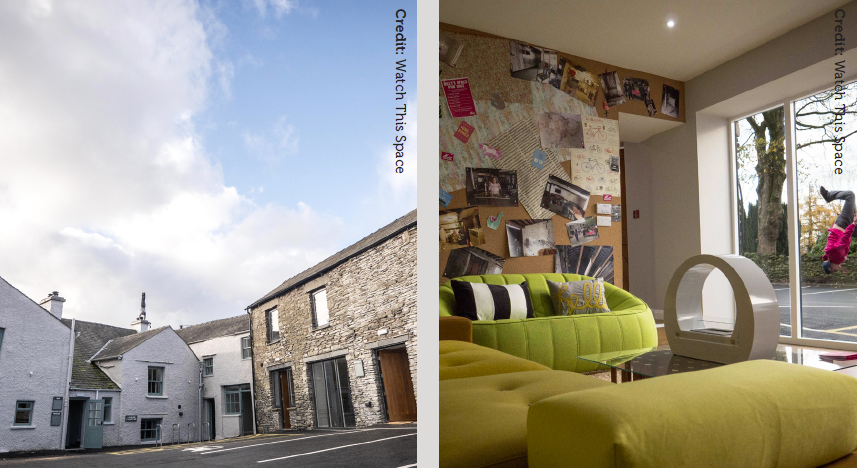[3.16.01] Growth and expansion of all types of business and enterprises making provision for new jobs across a range of sectors. We want these sectors to diversify the job base and deliver higher paid jobs.
To increase the resilience of the Lake District to all types of flood events, including river, surface water and coastal flooding.
[3.16.02] The Lake District’s economy is heavily influenced by tourism as the ‘accommodation and food service activities’ and ‘wholesale and retail trade’ sectors both account for high levels of the Lake District’s employment and turnover. Today, 36 per cent of employment is associated with ‘accommodation and food services’, 16 per cent is associated with ‘wholesale and retail trade’, and 10 per cent is associated with ‘agriculture, forestry, and fishing’. The Lake District has a strong tradition of industry supporting its communities and generating wealth which has had a big influence in shaping the Lake District’s cultural landscape. It is widely recognised that because of the influence of certain industries in the Lake District there is considerable movement of people both into and out of the Lake District for work.
[3.16.03] As the economy, and more importantly the way people work is changing, the way in which the number of jobs as a ratio of floorspace also changes. Changing working patterns such as home working and co-working, provide significant opportunities for the Lake District to secure a more diverse range of employment where businesses and employees can utilise digital infrastructure. However, traditional workspaces still play an important role within the Lake District and such spaces will still need to be retained and created. Digital infrastructure will provide opportunities to improve the efficiency and effectiveness of the use of these traditional spaces.
[3.16.04] Competition for land is strong in many of the larger settlements in the Lake District with pressure from residential and visitor uses. This inevitably means that it is not always possible to find employment sites in all the Rural Service Centres. However, there are various different opportunities to provide employment space which may not fulfil traditional models of delivery. As such the location of employment space may not always be immediately within a settlement, particularly if it relates to a building conversion or reuse of a vacant site.
[3.16.05] The earnings of people employed in the Lake District fall below the median earnings of workplace and resident earnings of people in Cumbria. The working age of the population of the Lake District is also older than average, and the resident population is decreasing. Recruitment and access to the labour market is an issue for employers in particular. This is in part as a result of low unemployment levels and high house prices.
[3.16.06] We will encourage work hubs and other forms of innovative shared and flexible workspace that meets changing market expectations and requirements, and that appeals to younger people. We also support home based proposals, examples of which may include extensions, new build curtilage buildings, or placement of well-designed structures that enable people to work from home.
[3.16.07] The Lake District has limited environmental capacity to accommodate new development therefore it is necessary to protect employment uses. We would expect an appropriate marketing exercise to have taken place for a minimum of 12 months, and other evidence may include, but not limited to, evidence of demand from commercial property agents and District Councils.

The former Duke William pub in Staveley has been redeveloped and transformed into seven creative workspaces, offering flexible premises to buy or rent, each with their own kitchens and toilets.